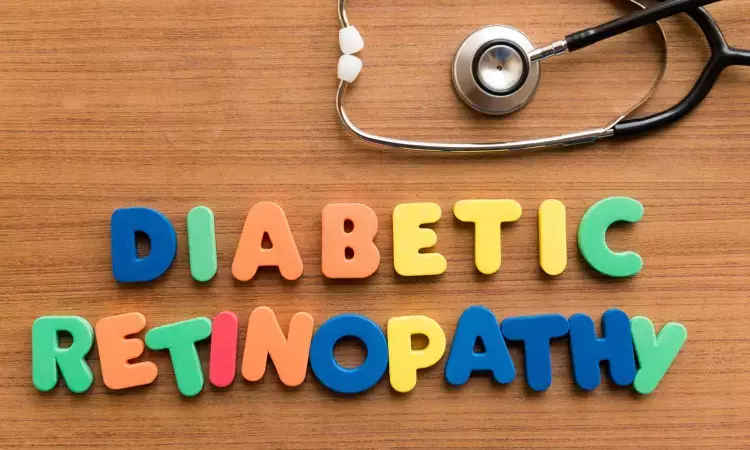- Home
- Medical news & Guidelines
- Anesthesiology
- Cardiology and CTVS
- Critical Care
- Dentistry
- Dermatology
- Diabetes and Endocrinology
- ENT
- Gastroenterology
- Medicine
- Nephrology
- Neurology
- Obstretics-Gynaecology
- Oncology
- Ophthalmology
- Orthopaedics
- Pediatrics-Neonatology
- Psychiatry
- Pulmonology
- Radiology
- Surgery
- Urology
- Laboratory Medicine
- Diet
- Nursing
- Paramedical
- Physiotherapy
- Health news
- Fact Check
- Bone Health Fact Check
- Brain Health Fact Check
- Cancer Related Fact Check
- Child Care Fact Check
- Dental and oral health fact check
- Diabetes and metabolic health fact check
- Diet and Nutrition Fact Check
- Eye and ENT Care Fact Check
- Fitness fact check
- Gut health fact check
- Heart health fact check
- Kidney health fact check
- Medical education fact check
- Men's health fact check
- Respiratory fact check
- Skin and hair care fact check
- Vaccine and Immunization fact check
- Women's health fact check
- AYUSH
- State News
- Andaman and Nicobar Islands
- Andhra Pradesh
- Arunachal Pradesh
- Assam
- Bihar
- Chandigarh
- Chattisgarh
- Dadra and Nagar Haveli
- Daman and Diu
- Delhi
- Goa
- Gujarat
- Haryana
- Himachal Pradesh
- Jammu & Kashmir
- Jharkhand
- Karnataka
- Kerala
- Ladakh
- Lakshadweep
- Madhya Pradesh
- Maharashtra
- Manipur
- Meghalaya
- Mizoram
- Nagaland
- Odisha
- Puducherry
- Punjab
- Rajasthan
- Sikkim
- Tamil Nadu
- Telangana
- Tripura
- Uttar Pradesh
- Uttrakhand
- West Bengal
- Medical Education
- Industry
Fenofibrate Therapy Effective in Slowing Diabetic Retinopathy Progression: ADA

Cholesterol drug fenofibrate has shown potential for slowing the progression of diabetic retinopathy in people with early retinal changes, with the potential to reduce the need for retinal laser or intravitreal injection treatment, new trial data presented at American Diabetic Association suggests.
The findings of simultaneously study published in the NEJM Evidence journal through Scotland’s national Diabetic Eye Screening (DES) program reveal that fenofibrate therapy may significantly slow the progression of diabetic retinopathy which commonly causes blindness among adults with diabetes. This promising finding could pave the way for new treatment protocols to preserve vision in diabetic patients.
The extensive trial involved a total of 1,151 adults with nonreferable diabetic retinopathy or maculopathy. The participants were randomly assigned to receive either 145-mg fenofibrate tablets or a placebo. The participants with impaired renal function took the medication on alternate days. The primary focus of this study was on the development of referable diabetic retinopathy or maculopathy, as well as the need for treatment interventions such as intravitreal injections, retinal laser procedures, or vitrectomy.
Over a median follow-up period of four years, the outcomes demonstrated a clear benefit for those on fenofibrate. In the fenofibrate group, 22.7% progressed to referable diabetic retinopathy or maculopathy or required treatment when compared to 29.2% in the placebo group. This represented a significant reduction in risk, with a hazard ratio of 0.73 (95% confidence interval [CI], 0.58 to 0.91; P=0.006).
Further analysis showed that any progression of retinopathy or maculopathy was observed in 32.1% of the fenofibrate group versus 40.2% in the placebo group which indicated a hazard ratio of 0.74 (95% CI, 0.61 to 0.90). Also, the development of macular edema occurred in only 3.8% of the participants on fenofibrate when compared to 7.5% on placebo, with a hazard ratio of 0.50 (95% CI, 0.30 to 0.84).
The study also monitored serious adverse events which occurred in 36.1% of fenofibrate participants and 35.5% of placebo participants by indicating no significant increase in severe side effects due to fenofibrate. However, a marked finding was the decrease in estimated glomerular filtration rate (eGFR) in the fenofibrate group, with a trial-averaged eGFR being 7.9 ml/min/1.73 m² lower when compared to the placebo group.
While fenofibrate did not significantly impact visual function, quality of life, or visual acuity, its role in reducing the progression of diabetic retinopathy is promising. Overall, these findings suggest that fenofibrate could be a valuable addition to the management strategies for diabetic retinopathy in the early stages of the disease.
Source:
Preiss, D., Logue, J., Sammons, E., Zayed, M., Emberson, J., Wade, R., Wallendszus, K., Stevens, W., Cretney, R., Harding, S., Leese, G., Currie, G., & Armitage, J. (2024). Effect of Fenofibrate on Progression of Diabetic Retinopathy. In NEJM Evidence. Massachusetts Medical Society. https://doi.org/10.1056/evidoa2400179
Neuroscience Masters graduate
Jacinthlyn Sylvia, a Neuroscience Master's graduate from Chennai has worked extensively in deciphering the neurobiology of cognition and motor control in aging. She also has spread-out exposure to Neurosurgery from her Bachelor’s. She is currently involved in active Neuro-Oncology research. She is an upcoming neuroscientist with a fiery passion for writing. Her news cover at Medical Dialogues feature recent discoveries and updates from the healthcare and biomedical research fields. She can be reached at editorial@medicaldialogues.in
Dr Kamal Kant Kohli-MBBS, DTCD- a chest specialist with more than 30 years of practice and a flair for writing clinical articles, Dr Kamal Kant Kohli joined Medical Dialogues as a Chief Editor of Medical News. Besides writing articles, as an editor, he proofreads and verifies all the medical content published on Medical Dialogues including those coming from journals, studies,medical conferences,guidelines etc. Email: drkohli@medicaldialogues.in. Contact no. 011-43720751


